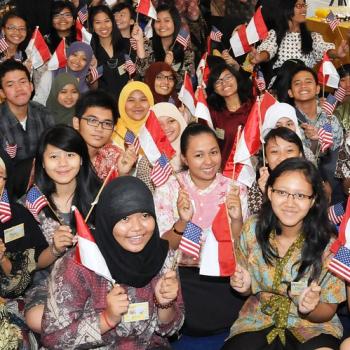Here’s what’s not in dispute: NYU, as part of the most ambitious international expansion program of any U.S. university, is about to open a satellite campus in Shanghai that is being heavily subsidized by the city government. Chinese authorities haven’t hesitated in the past to punish universities and blacklist professors who cross its political red lines. And NYU already has a record of appeasing the authorities in Abu Dhabi, the site of another satellite campus.
The university is at the forefront of an exploding trend: the expansion of U.S. universities, think tanks and other cultural institutions not just to London and Paris, but to unfree countries whose governments are spending billions of dollars to buy U.S. teaching, U.S. prestige — and, perhaps, U.S. intellectual freedom. China is one of them: In addition to NYU, it is partnering with Duke to build a satellite campus, hosts smaller programs from schools including Harvard, Yale and Princeton and sent 193,000 of its own students to U.S. universities last year.
In September a joint venture between Yale and Singapore will open on a campus built and paid for by that autocracy. Then there are the Persian Gulf states. The United Arab Emirates hosts branches of Paris’s Sorbonne and the Louvre and Guggenheim museums in addition to NYU. While funding jihadists in Syria and Libya, Qatar is on its way to spending $33 billion on an “education city” hosting offshoots of Cornell, Georgetown, Northwestern, Texas A&M and Carnegie Mellon.
Is it possible to accept lucrative subsidies from dictatorships, operate campuses on their territory and still preserve the values that make American universities great, including academic freedom? The schools all say yes, pointing to pieces of paper — some of them undisclosed — that they have signed with their host governments. The real answer is: of course not.
Take Yale-National University of Singapore, a brainchild of recently departed president Richard C. Levin. When Yale’s faculty passed a resolution last year citing the “history of a lack of respect for civil and political rights” in Singapore, Levin called it “unseemly.” But several months later the new school’s governing board adopted a policy of preventing students from creating campus branches of Singaporean political parties, engaging in partisan political campaigning, or “promoting religious strife.” It also said students will be bound by Singapore’s laws, which restrict speech and ban sodomy.
In effect, as professors Seyla Benhabib and Christopher Miller argued in the Yale Daily News, “an institution bearing Yale’s name — headed by professors and staff taken from Yale-New Haven — is in the business of restricting the rights of students.”
As for academic freedom, a key test of the offshore institutions came at the height of the Arab Spring in 2011, when Nasser bin Ghaith, a lecturer at the Sorbonne campus in Abu Dhabi, was arrested and tried with four other activists for supporting democratic elections. As the scholar Alisa Rubin recounts in a forthcoming book, Human Rights Watch called on NYU and the other Western institutions there to speak up for the activists; so did more than 100 NYU faculty members.
Yet NYU joined with the Sorbonne in throwing Bin Ghaith overboard. A Sorbonne statement said the university had “no authorized means to express an opinion” because the charges against the professor were “external to his academic activities.” NYU also declined to make a statement; a spokesman said it fell outside NYU’s “core mission.” Concludes Rubin: “The Western universities . . . were not willing to risk their sweet financial deals and opulent new campuses by speaking up.”











